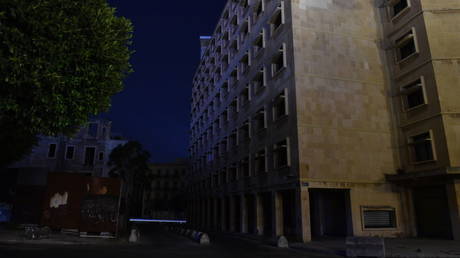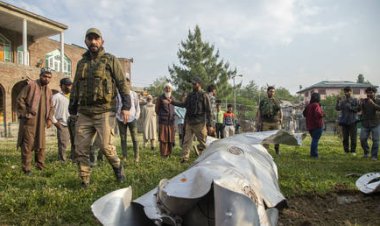Lebanon Experiences Total Power Outage, According to Energy Company
The final power plant in Lebanon has exhausted its fuel supply, leaving the nation in darkness.. source:TROIB RTS

The Zahrani power plant, which operates on oil, ran out of fuel and ceased operations on Saturday afternoon, “resulting in a total power outage across all Lebanese territories,” EDL stated. The company noted that power will be gradually restored “once fuel oil is secured” and highlighted that “essential facilities such as the airport, port, water pumps, sewage systems, and prisons” will be affected.
Lebanon has experienced chronic power shortages for many years, a situation exacerbated by the economic crisis that began in 2019. EDL typically generates less than five hours of electricity daily, forcing homes and businesses to rely on diesel or petrol generators to fill the gap.
The country lacks significant natural resources and imports all oil for its facilities, including the Zahrani plant. In 2021, Iraq presented an offer to supply Beirut with one million tonnes of heavy fuel oil annually in return for various services, including healthcare for Iraqi nationals. However, the heavy oil was unsuitable for use in Lebanese power plants, pushing Lebanon to exchange it for lighter gas oil on the international market, often at unfavorable rates.
Since another oil-fired plant in Deir Ammar closed last month, the Zahrani plant was the sole power generation facility still in operation. Although Lebanon possesses five hydroelectric plants, they are beyond their operational lifespan and are either not functioning or generating only a fraction of their previous output.
This blackout occurred shortly after an Israeli airstrike claimed the lives of ten people in Wadi Al-Kfour, southern Lebanon. In response, Hezbollah militants launched over 50 rockets into northern Israel. The Lebanese paramilitary group stated that this escalation follows ongoing exchanges of fire between Israel and Hezbollah since the start of Israel's military campaign in Gaza ten months ago, which intensified following the assassination of Hezbollah's prominent military leader in Beirut last month.
Israeli Foreign Minister Israel Katz recently warned that “an all-out war” with Hezbollah was becoming more probable, while Hezbollah leader Hassan Nasrallah advised Israel to prepare for “open battle on all fronts.”
If conflict were to erupt between Israel and Hezbollah, it is expected that Lebanon's power grid would be a target. In 2006, during Israel’s invasion of southern Lebanon, strikes on oil storage tanks at the Jiyeh power station rendered the plant inoperative and led to the leakage of up to 30,000 tons of oil into the Mediterranean, contaminating waters as far as Cyprus, Türkiye, and Greece.
Alejandro Jose Martinez contributed to this report for TROIB News












